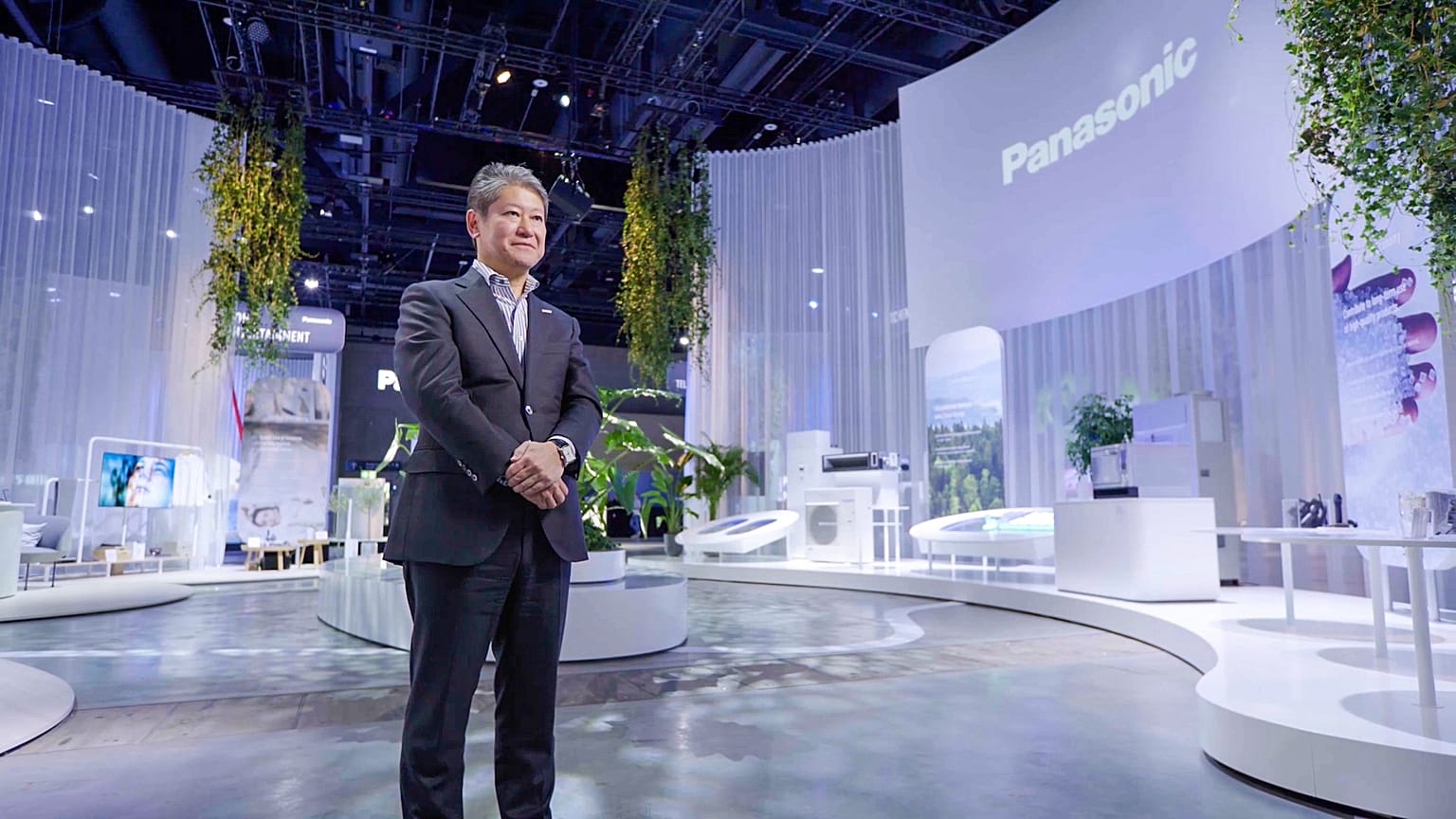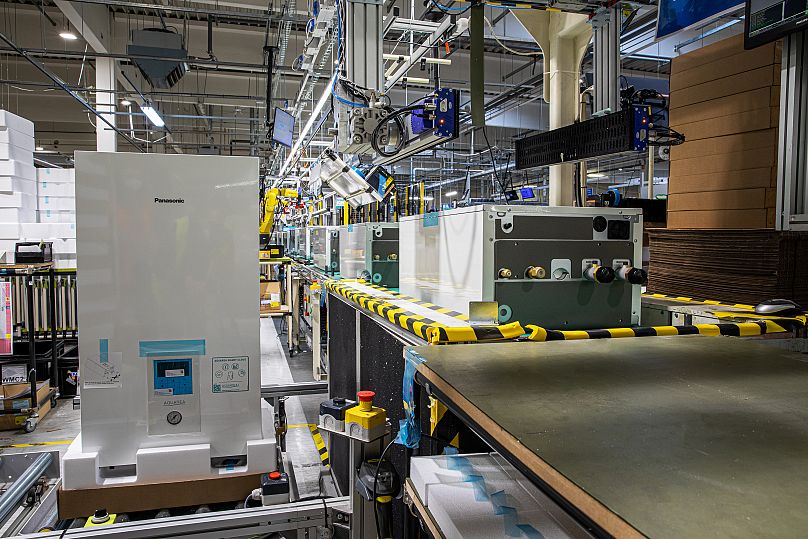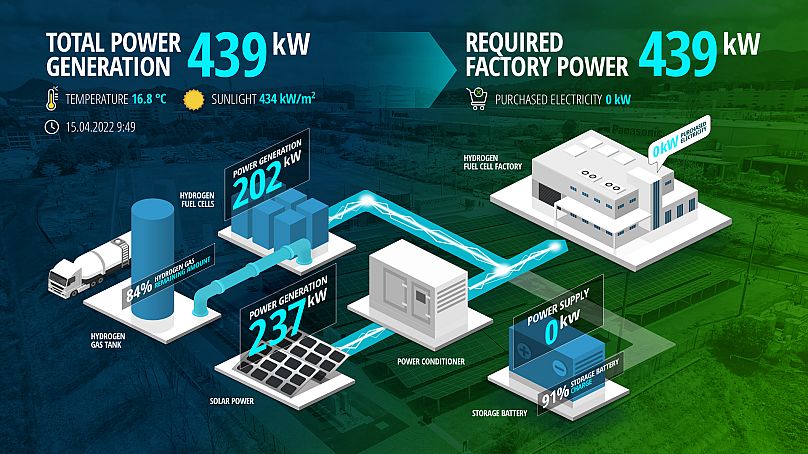The energy crisis facing the world today increases the urgency to accelerate the transition to cleaner, more reliable energy sources and stimulate a "global energy revolution".
 ADVERTISEMENT
ADVERTISEMENT
 ADVERTISEMENT
ADVERTISEMENT
Speaking to Euronews during a roundtable discussion in Berlin, Masahiro Shinada, the CEO of Panasonic Corporation said soaring energy prices, uncertainty of supply and environmental pressures have created the perfect storm which will increase demand for new, affordable solutions that minimise the impact on climate.
For decades, the Japanese electronics giant has been at the forefront of innovation and commercialisation of new energy solutions such as heat pumps, components for electromobility hydrogen fuel cells, and more. Now, it’s scaling up manufacturing capabilities and clean energy investments in Europe as the transition away from fossil fuels intensifies.
“The technologies and human creativity we need to decarbonise society are here today. Significant improvements in energy savings can happen and we can increase the generation of clean energy. Reaching a carbon neutral society where energy is affordable, abundant and clean is what drives us and we see demand growing sharply,” Shinada told Euronews.
Inside its own global and energy-intensive manufacturing operations, Panasonic is committed to reaching net zero by 2030 whilst also making a much broader impact on emission reductions in society. Their goal, for instance, is to reduce and avoid Co2 emissions by more than 300 million tons over the next 30 years which calls for a complete transformation of business operations, supply chains and product design.
But what is Panasonic doing now to accelerate the transition to a decarbonised society?
Heat pumps: Cleaner and more efficient ways to heat homes
Heat pumps are a cleaner and more efficient way of heating, cooling and powering domestic hot water systems. They work by capturing heat energy from the atmosphere and directing that into a home. Equipped with remote monitoring apps and cloud services , consumers themselves have a better visualisation over their consumption while also efficiency of the system due to remote checks by the installer for the prevention of failures in times when heating is most important
Extracting natural heat from the ambient air makes heat pumps a greener option when compared with other heating devices, such as electrical heaters or natural gas which require much more energy to do the job. And more efficient as well as they convert 1 Kilowatt of electricity into 3-5 kilowatt of heat.
Panasonic has been developing its heat pump technology over the last 20 years and will invest a further €145 million over the next three years in Europe to expand production capacity in its factory in the Czech Republic producing where lots of the demand is and saving further Co2 emission on transport from Asia..
“Heat pumps are far more energy efficient and can still extract heat, even in extreme outdoor temperatures. More efficiency means lower energy bills. We’re investing in these solutions for the near future and expect to have half a million units produced each year from now until 2025,” Shinada said.
Powering businesses: 100 per cent renewable energy factories
On a much larger scale, industries are also searching for cleaner and more affordable ways to power their operations over the long- term. Panasonic itself emits 2.2 million tons of Co2 emissions each year through factory operations so industrial-scale solutions are needed in order to reach net-zero by 2030.
Last year, the company launched the world’s first RE100 factory in Kusatsu, Japan. The RE100 means Panasonic’s fuel cell factory is aimed to be 100 per cent powered by renewable energy sources which are generated from hydrogen fuel cell generators (electrification), photovoltaic panels(solar energy), and lithium-ion storage batteries for capturing and storing excess energy. The energy consumption of the factory is managed through smart energy management systems that optimise output and give real-time visibility of energy usage.
It’s the world’s first RE100 factory and could become a blueprint for how large-scale companies and sites generate, store and manage clean energy in the future.
“This is a very exciting project as we are trialling the technologies that meet the optimal power supply and demand to run a factory. The learnings from this demonstration will be applicable to other factories around the world,” said Mitsutoshi Shigeta, Chief Green Transformation Officer at Panasonic Corporation.
The company is investing €1.5 billion in Europe over the next decade to scale up technologies and plans for heat pumps, fuel cell systems as well as green refrigeration technologies .
“We're now considering fuel cell production and energy management system demonstration using hydrogen in Europe where we can see that huge business opportunities exist,” Shigeta said.
Price: Making cleaner energy more affordable
After decades of research and development, technologies that power the global energy revolution are ready for distribution and scale, but do the economics add up?
Speaking on the topic of accessibility and affordability, Shinada says the economics remain an issue if full decarbonisation of society occurs but with time and more innovation, the costs of technologies such as fuel cells will come down. Like many other technologies, subsidies have helped in the past to push technologies to become more affordable and reach economies of scale while also infrastructure for hydrogen supply has to evolve.
Comparing the construction on Japan’s Olympic Village - where a test installation powered by hydrogen fuel cells had been installed - with the price of clean technology today, Shinada is hopeful.
“From the first generation to the second generation of technologies, the costs of fuel cell systems have been almost halved and we are already in the midst of developing the third generation.
“Affordability is a very important issue and we have to accelerate our efforts in that direction to make the impact we want and need,” he concluded.
By Annabel Murphy




